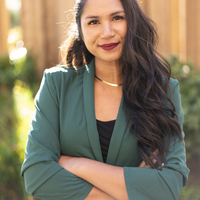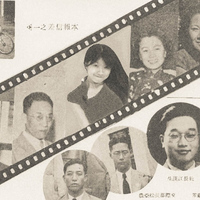
Victoria Gill
Dr. Victoria Gill is a first-generation, Lao Punjabi poet, practitioner-scholar, and Assistant Professor at Lesley University's Graduate School of Education in the Language and Literacy Department. She was also a former teacher of English at the middle school level and a former team leader of professional learning communities. She obtained her doctorate in Reading, Writing, and Literacy from the University of Pennsylvania. Having long been passionate about issues of power and identity, she investigates their intersections and how they relate to literacies and pedagogies in ways that create pathways for teachers to build inclusive classrooms that center historically excluded perspectives and voices. Her current research examines the employment of Intersectionality with aims for equity and agency with a focus on Southeast Asian (American) Children’s and Young Adult Literature in secondary English Language Arts classes. Dr. Gill’s research/poetry has been published in The Southeast Asian American Education and Achievement Journal, English Journal, the Assembly on Literature for Adolescents of NCTE, LEARNing Landscapes, Writing & Pedagogy, in:cite journal, and the Urban Education journal.
less
Related Authors
Jeanette McVicker
SUNY Fredonia
Stefano Rozzoni
Università degli Studi di Bergamo (University of Bergamo)
Panpan Yang
SOAS University of London
Jennifer Phuong
Swarthmore College
Leyton Schnellert
University of British Columbia
Mara Santi
Ghent University
Guylian Nemegeer
Universiteit Gent
InterestsView All (29)








Uploads
Papers by Victoria Gill
In this way, we take on abolitionist perspectives of analysis, organizing, and practice. Following the lead of Kaba (2021) and Love (2019), we examine oppression through structural lenses, as mentioned above, and not oppression as mediated among individuals. We focus on building our communities through healing justice practices and collective care (Piepzna-Samarasinha, 2018), rather than seeking justice from states that have enacted violence. The healing justice movement emphasizes the importance of healing as part of resistance. This foregrounds interdependence, solidarity, and sustainability as central forms of building collective healing power.
In this way, we take on abolitionist perspectives of analysis, organizing, and practice. Following the lead of Kaba (2021) and Love (2019), we examine oppression through structural lenses, as mentioned above, and not oppression as mediated among individuals. We focus on building our communities through healing justice practices and collective care (Piepzna-Samarasinha, 2018), rather than seeking justice from states that have enacted violence. The healing justice movement emphasizes the importance of healing as part of resistance. This foregrounds interdependence, solidarity, and sustainability as central forms of building collective healing power.